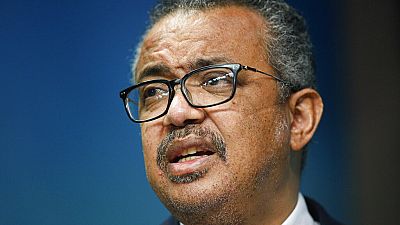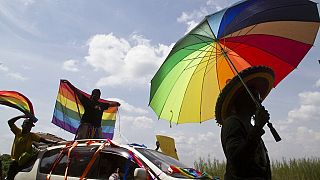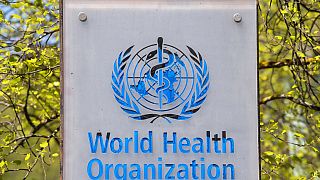Sexual Abuse
A woman who claims she was victimized by a World Health Organization doctor during a recent Ebola outbreak in Congo said she is shocked that no senior officials were punished for the sexual abuse and exploitation claims involving dozens of women in the conflict-ridden country.
On Monday, the AP reported on a confidential U.N. report that excused senior staffers for their mishandling of another case due to a "loophole" in how WHO defines victims of such behavior.
Anifa, a young Congolese woman who worked at an Ebola treatment center in Beni during the outbreak, said she could not understand WHO's seeming excusal of misconduct.
"It is a shame for WHO to give work to the kinds of men who do not respect women," she said, declining to share her full name, for fear it could hurt her future job prospects. Anifa said she had been offered a job by a WHO doctor in exchange for sex during the Ebola epidemic, but refused. The AP does not identify victims of sexual abuse.
"Perhaps WHO does not consider us because we are Africans?" she asked. "As long as I am alive, I will hate the entire World Health Organization until (the perpetrators) are charged and punished."
Paula Donovan, co-leader of the Code Blue campaign, which seeks to hold the U.N. accountable for sexual offenses, said WHO member countries looked the other way on the agency's sexual misconduct charges because they could not afford to weaken the institution during the coronavirus pandemic.
"Countries could not go after WHO because it was doing what the U.S. and other rich countries would not do during COVID, which is trying to figure out how to get vaccines to the poor."
She said donor countries had likely made a disturbing calculation about the costs of responding to global health crises.
"It is very depressing, but officials have essentially concluded this is the price that has to be paid, that some women are going to be sexually exploited."
The U.N. report was focused on a case first reported by the AP in May 2021, involving Dr. Jean-Paul Ngandu, who worked on the Ebola response in northeastern Congo in 2019. Shortly after his arrival, Ngandu met a young woman at a local restaurant. The two had sex later that evening, but the relationship soured, and the woman and her aunt complained to WHO that Ngandu had impregnated her.
AP obtained a copy of a notarized agreement between Ngandu and the woman, signed by two WHO staffers, in which he agreed to cover her health care costs and buy her land.
After concerns about the Ngandu case were raised to WHO's Geneva headquarters, "a decision was made not to investigate the complaint on the basis that it did not violate WHO's (sexual exploitation and abuse) policy," the U.N. report said. The report said this was because the woman was not a "beneficiary" of WHO, meaning she didn't receive any humanitarian aid, and thus, did not qualify as a victim under WHO policy.
WHO chief Tedros Adhanom Ghebreyesus has said repeatedly he is "outraged" by reports of sexual misconduct. But to date, no senior staffers linked to the sexual abuse allegations in Congo's 2018-2020 Ebola outbreak — where more than 80 workers under the direction of WHO and other agencies were found to have abused or exploited women — have been fired.
A panel appointed by Tedros to investigate the Congo sex abuse claims found numerous allegations of sexual assault by WHO staffers, including women forced to have abortions by their attackers and a 13-year-old girl who said a WHO driver took her to a hotel where she was raped.
Tudi Diane Tumba, a coordinator at a Congolese organization that advocates for women's rights, said they were still assessing complaints from young women and girls who alleged they were sexually abused or exploited by WHO officials during the Ebola epidemic.
"It is very shameful if the WHO will not sanction Dr. Ngandu," Tumba said. "I encourage women to denounce and shout louder so that these sexual abuses end." Ngandu was not fired; his contract was not renewed, but he was not reprimanded by WHO.
Some global health experts were unconvinced by Tedros' professed indignation.
"It undermines the complete integrity of WHO that no one has lost their job over this," said Sophie Harman, a professor of international politics at Queen Mary University in London. "If WHO is serious about gender equality, then it is time for Tedros to go."
WHO's director of communications insisted the agency was committed to addressing sexual misconduct.













Go to video
Ruto's $9M mega church sparks outrage amid Kenya's crisis
Go to video
“I can’t do nuttin’ for ya man”, Nigerian Minister quotes Flavour Flav in rejection of Trump policy
Go to video
U.S. slashes visa duration for some African nationals amid policy shift
Go to video
Nigeria snubbed at White House summit, opposition blames Tinubu
Go to video
Ghana cracks down on gold smuggling with new multi-agency task force
Go to video
African migrants targeted as visa scams surge amid tougher immigration rules in Canada